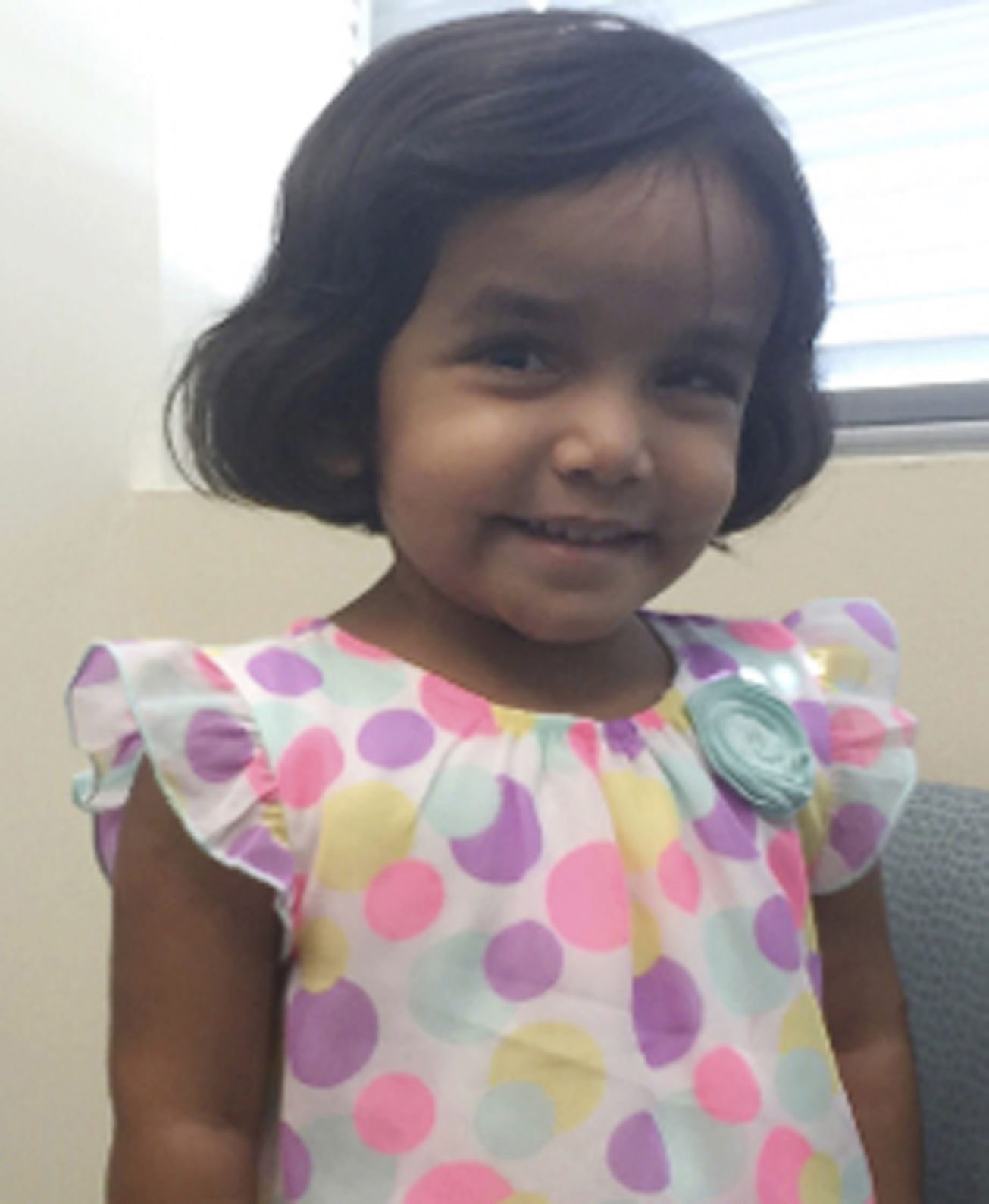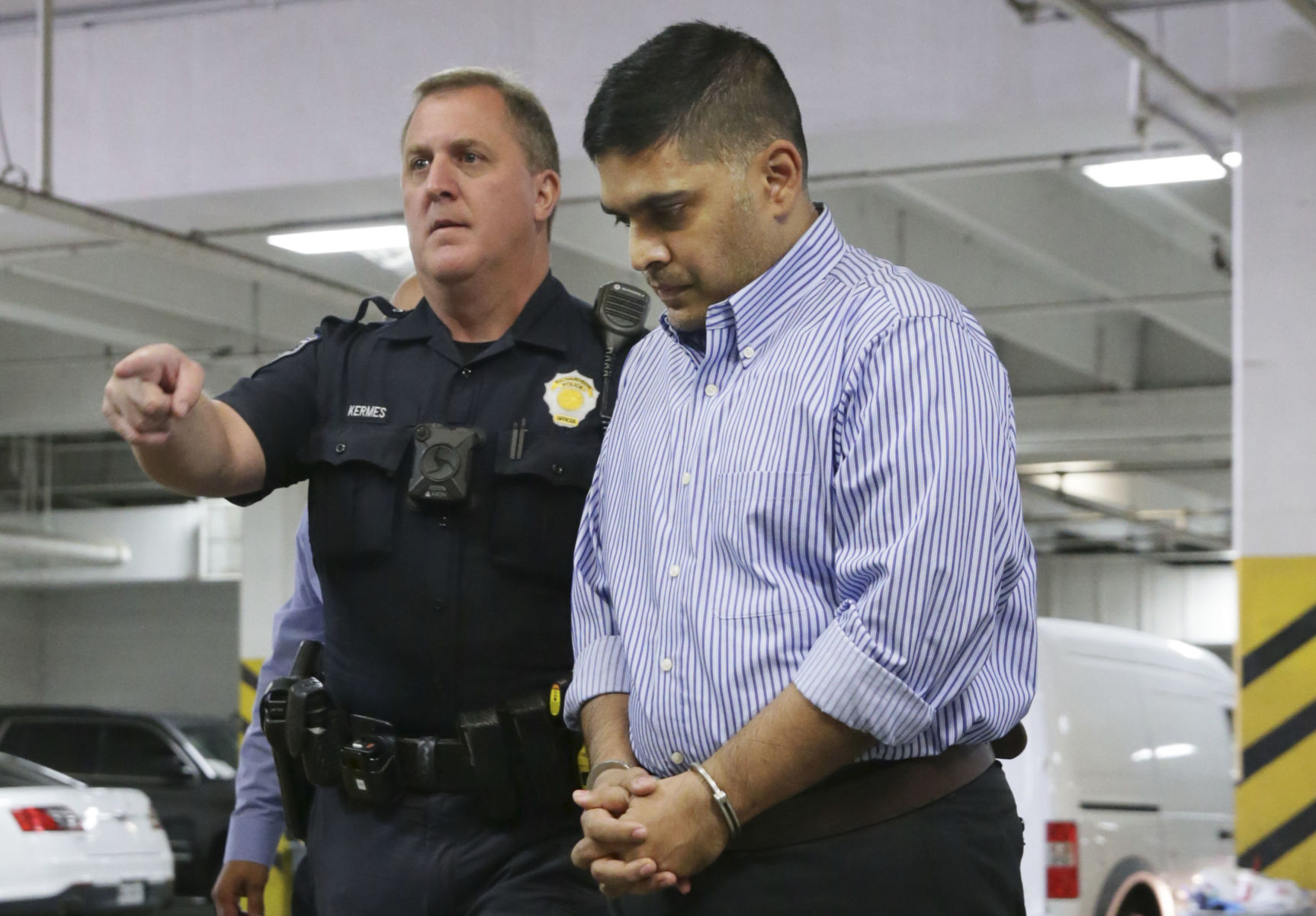NEW DELHI (AP) — A toddler whose body was recently found in a drain in suburban Dallas was cheerful, healthy and eating well a year ago when she met her new parents, according to the manager of the Indian orphanage
NEW DELHI (AP) — A toddler whose body was recently found in a drain in suburban Dallas was cheerful, healthy and eating well a year ago when she met her new parents, according to the manager of the Indian orphanage from where Sherin Mathews was adopted.
Babita Kumari said she wants to know what happened to the 3-year-old girl, whose father has been jailed after telling police that Sherin had choked to death while drinking milk in the middle of the night. Wesley Mathews has told police Sherin needed a special diet involving meals at odd hours because she was malnourished.
Those claims puzzle Kumari, who managed the Mother Teresa Orphanage and Children’s Home in the city of Nalanda in eastern India’s Bihar state, where the girl had lived since infancy.
“Look at the photos of the child. Does she look malnourished?” Kumari said during a Thursday evening phone interview with The Associated Press.
“I have so many questions about what happened to her,” Kumari said.
The girl, then named Saraswati, after the Hindu goddess of wisdom, was a happy, cheerful child who made everyone smile at the orphanage.
“We loved her laughter,” Kumari said. “She was a smart child.”
Wesley Mathews reported his daughter missing Oct. 7, and Sherin’s body was found by cadaver dogs in a culvert under a road in Richardson, Texas, on Sunday. Mathews has been charged with felony injury of a child in Sherin’s death and is being held on $1 million bond.
A cause of death hasn’t been determined and autopsy results haven’t been released.
Mathews’ attorney, Rafael De La Garza, hasn’t responded to messages seeking comment left Thursday and Friday.
Mitch Nolte, an attorney representing the girl’s mother, Sini Mathews, issued a statement this week saying his client won’t submit to further police questioning. He said she wasn’t involved in Sherin’s death or the removal of her body, and requested privacy to mourn her child.
Wesley Mathews told police his daughter had developmental disabilities and was malnourished. He described a special diet regimen in which she had to eat whenever she was awake in order to gain weight.
According to an arrest affidavit filed by Richardson police, Mathews said he had been trying to get the girl to drink milk in the garage of their home.
“Eventually the 3-year-old girl began to drink the milk. Wesley Mathews then physically assisted the 3-year-old girl in drinking the milk,” according to the affidavit.
Mathews told police that Sherin choked and coughed and eventually he felt no pulse and believed the child had died. Investigators wrote that he “then admitted to removing the body from the home.”
The affidavit does not say whether Mathews administered any medical aid to his daughter.
The child was already eating solid food and drinking milk from a cup when she left the orphanage, Kumari remembers. She said Sherin squinted in one eye, but otherwise had nothing wrong with her when Wesley and Sini Mathews adopted her in June 2016.
“Why did they have to make her eat or drink anything at that hour? Why was he forcing her?” Kumari asked. “If someone is forcing a drink into the mouth of someone who is crying and sobbing, then even an adult can choke.”
India’s foreign minister Sushma Swaraj tweeted Friday that she has asked the Ministry of Women and Child Development, which oversees adoptions, to thoroughly investigate Sherin’s adoption.
Swaraj said passports for children adopted from India will now only be issued with the ministry’s approval.
Sherin was sent to the orphanage in Nalanda by child welfare authorities when she was only a few months old. It has since shut down. Kumari said that was due to missing paperwork and that the orphanage plans to challenge the shutdown.
Adoption is relatively rare in India, even though hundreds of thousands of children are at risk or living in government-run or -mandated centers. Religion and caste remain important social indicators, so it’s not often considered an option by Indian families. The government has tried to promote the idea and it mandates prospective parents to register as a way to prevent trafficking and reduce cumbersome paperwork.
Between April 2016 to March this year, 3,210 children were adopted within India and just 578 Indian children were adopted from outside the country.
Kumari said the Mathews’ raised no red flags at the orphanage when they adopted Sherin. After their first visit to see the girl, they called regularly from the United States.
“They wanted to hear her voice over the phone. They seemed to love her. The follow up reports from America were also good.”
A spokeswoman for Holt International, a U.S. adoption agency that facilitates several hundred foreign adoptions each year, said the agency by law cannot discuss specific adoptions or confirm whether it facilitated an adoption for the Mathews. She said the agency follows all national and international guidelines and requirements for adoptions, which are very specific for each country.
According to the U.S. State Department, India requires quarterly post-placement reports in the first year a child is adopted and then two reports a year for the second year. Holt International’s website said the agency complies with those requirements but also does a one-month post-placement report.
“I will always want to know what happened to this child. What was the real reason she passed away,” Kumari said.
“If we had known this would happen to her, we would never have sent her.”
———
Associated Press reporter Claudia Lauer in Dallas contributed to this story.
———
Sign up for the AP’s weekly newsletter showcasing our best reporting from the Midwest and Texas: http://apne.ws/2u1RMfv



